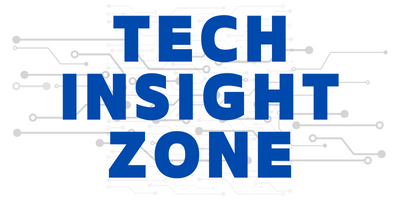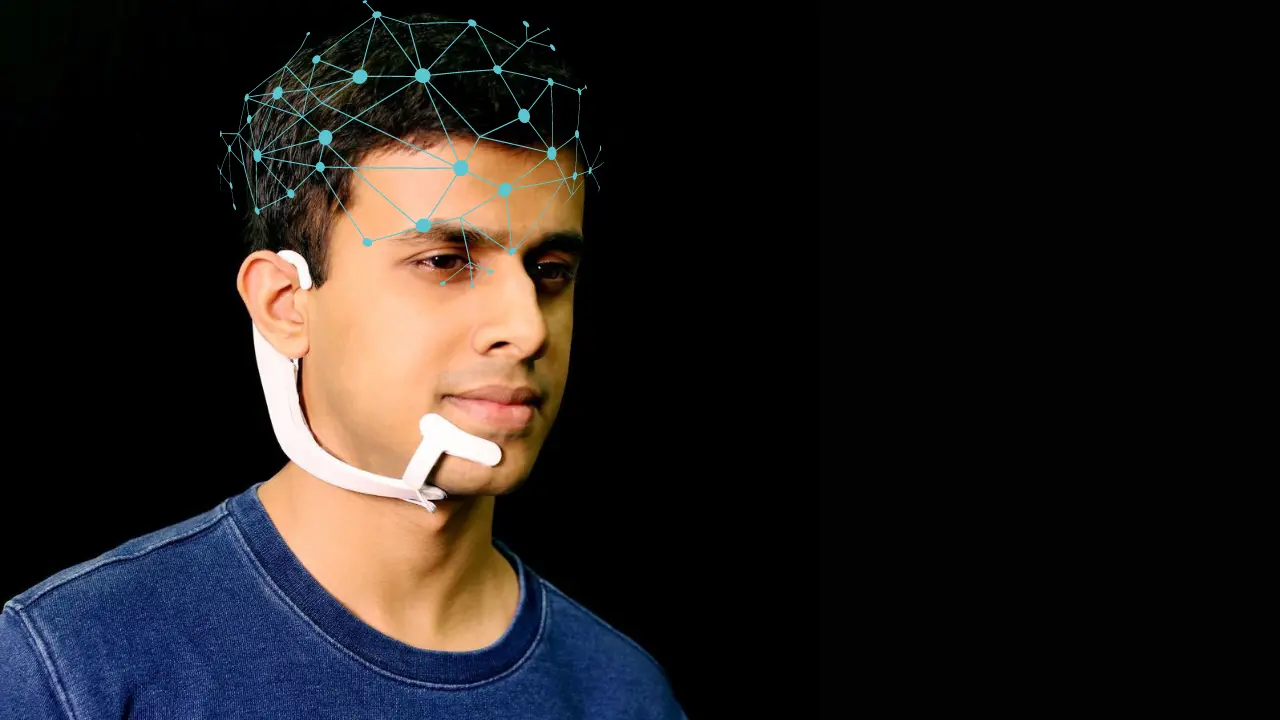In an era where technology is rapidly evolving, a groundbreaking invention has emerged from the Massachusetts Institute of Technology (MIT). Arnav Kapur, a Delhi-born graduate student, has developed a device called ‘AlterEgo’ that is set to redefine the boundaries of human-machine interaction.
Arnav Kapur’s AlterEgo, a brain-computer interface (BCI) promising silent communication, has the world abuzz. Headlines dance with visions of telepathy, augmented reality, and a future where technology seamlessly blends with the human mind.
But before we get swept away in the futuristic fervor, let’s delve deeper, dissect the technology, and ponder the ethical symphony or discordant cacophony it might orchestrate.
What is AlterEgo? Decoding the Whispers
(Video- TED TALKS)
Imagine a world where your thoughts could control technology: that’s the vision behind AlterEgo, a groundbreaking brain-computer interface presented at TEDx 2019.
AlterEgo is a wearable headset that captures peripheral neural signals during a human’s internal articulation of words. This non-invasive, peripheral neural interface allows users to converse in natural language with machines, AI assistants, services, and even other people without any voice.
The device enables the user to transmit and receive information without any externally observable movements, simply by articulating words internally.
Unlike mind-reading from science fiction, AlterEgo doesn’t delve into the depths of our thoughts. Instead, it focuses on the whispers of our unspoken words. Using electromyography (EMG) sensors, it detects subtle muscle movements in the jaw and neck associated with silent speech.
Electroencephalography (EEG) sensors further refine the signal, allowing it to “decode” the user’s internal monologue. This symphony of electrical activity is then translated into text or commands, enabling interaction with devices and AI assistants, all without a spoken word.
Seems impressive? Now, let’s talk about what does this mean to us?
A World of Possibilities: From Assistive Tech to Superpowers
The potential applications of AlterEgo are as vast as the human imagination. Imagine a world where individuals with speech impairments can effortlessly express themselves.
Imagine hands-free control of smart environments and augmented reality experiences where information overlays the real world, controlled by mere thought.
AlterEgo could revolutionize fields like education, offering personalized learning tailored to individual thought patterns, and healthcare, potentially enhancing surgical precision with thought-controlled instruments.
But the Score Has Discordant Notes: Privacy, Equity, and the Mind’s Currency
However, amidst the shimmering possibilities, ethical concerns loom like dark clouds. Privacy is paramount. What happens to the sensitive brain data collected by AlterEgo? Can it be hacked, misused, or weaponized?
The potential for discrimination based on neural activity is another chilling prospect. Will access to this technology exacerbate existing inequalities, creating a “thought divide” where some minds have more power than others?
Moreover, the impact on mental well-being deserves careful consideration. Could constant thought-to-action interaction lead to information overload and decreased attention spans?
Could it blur the lines between thought and reality, impacting our sense of self and personal agency? Is our mental space about to become another battleground for advertising and manipulation?
Beyond the Hype: A Measured Applause
AlterEgo is undoubtedly a groundbreaking invention, but it’s crucial to approach it with measured applause, not unbridled cheers. While its potential benefits are undeniable, the ethical considerations cannot be ignored.
We must prioritize privacy, accessibility, and responsible development before rushing headlong into an era of mind-melding technology.
The Key Questions: Conducting the Future’s Symphony
Before AlterEgo becomes mainstream, several key questions demand answers:
- Privacy and Security: Will user data be safeguarded like Fort Knox, or will it become the next Facebook scandal? What robust security measures will be in place to prevent hacking and misuse?
- Accessibility and Equity: How can we ensure equitable access to this technology for diverse populations, preventing a “thought divide” that widens existing inequalities?
- Mental Health and Well-being: What are the potential impacts on attention, focus, and cognitive load? How can we mitigate these risks and protect the sanctity of our inner world?
- Regulatory Frameworks: What regulations are needed to ensure responsible development and deployment of this technology, preventing ethical transgressions and unintended consequences?
It’s not just about the technology itself, but the social, ethical, and legal frameworks that will shape its impact.
We must engage in open and informed dialogue, involving experts from diverse fields (neuroscientists, ethicists, policymakers, the public), to ensure AlterEgo becomes a tool for good, not a Pandora’s box unleashing unforeseen consequences.
Conclusion: A Collective Responsibility, Not a Solo Performance
In a recent video interview of Kapur which is doing the rounds on the internet, he is seen with the device placed behind his ear and answering difficult questions such as “the largest city in Bulgaria and its population” in the blink of an eye.
The answer came post a Google search which Kapur conducted via his brain, without using speech or typing it on a search bar.
This invention is a significant leap toward a future where humans and machines can communicate seamlessly. It opens up a world of possibilities where the line between human cognition and artificial intelligence becomes increasingly blurred.
As we move forward, devices like AlterEgo could become an integral part of our daily lives, enhancing our abilities and transforming the way we interact with the world around us.
Follow Tech Insight Zone for more exciting tech updates every day!




